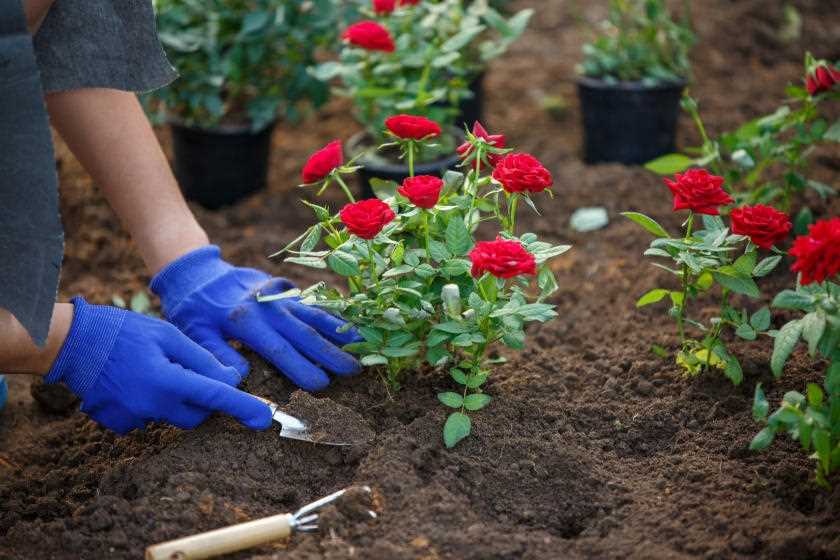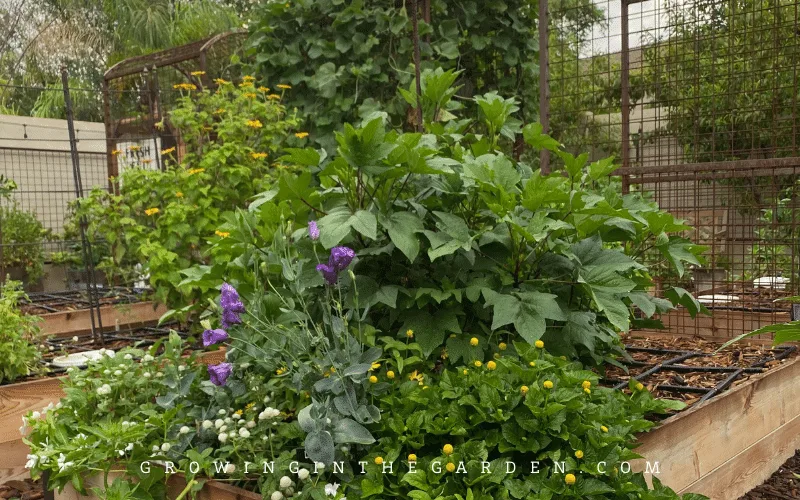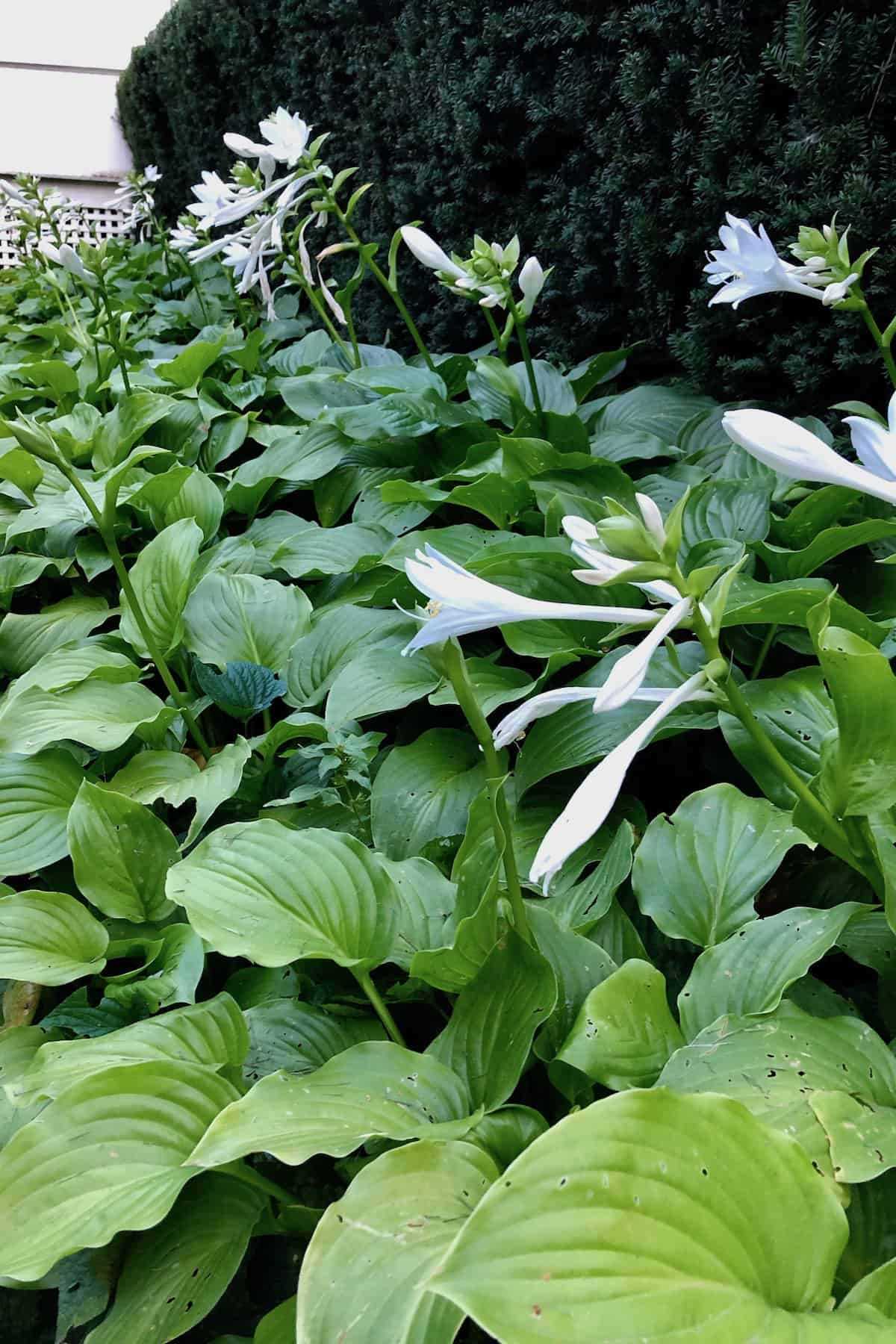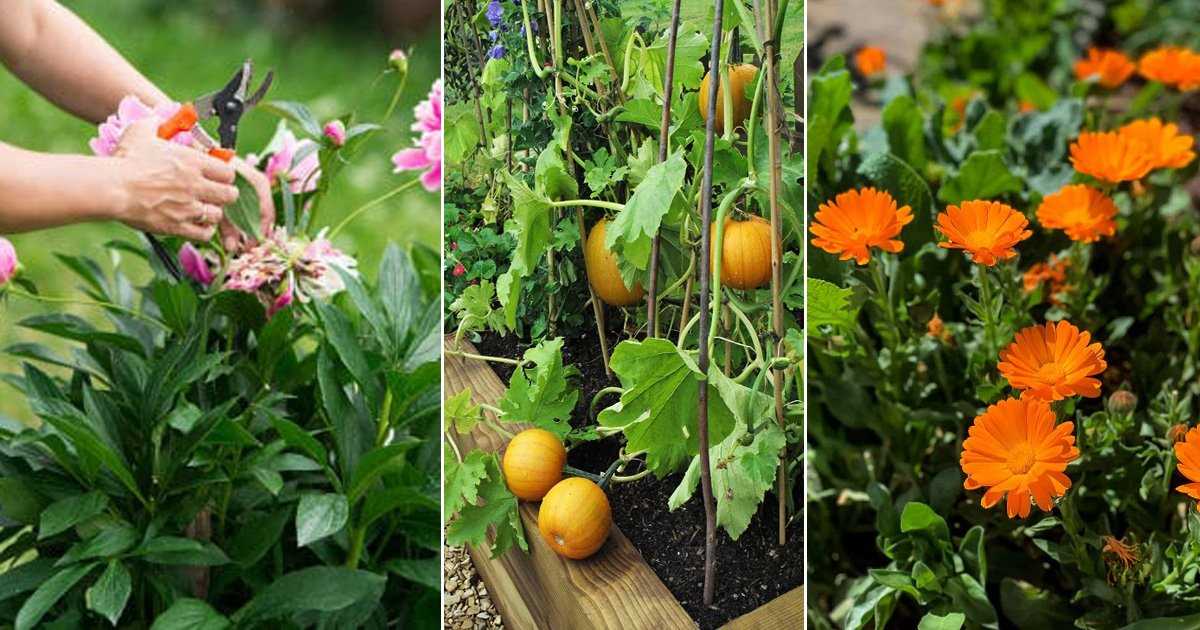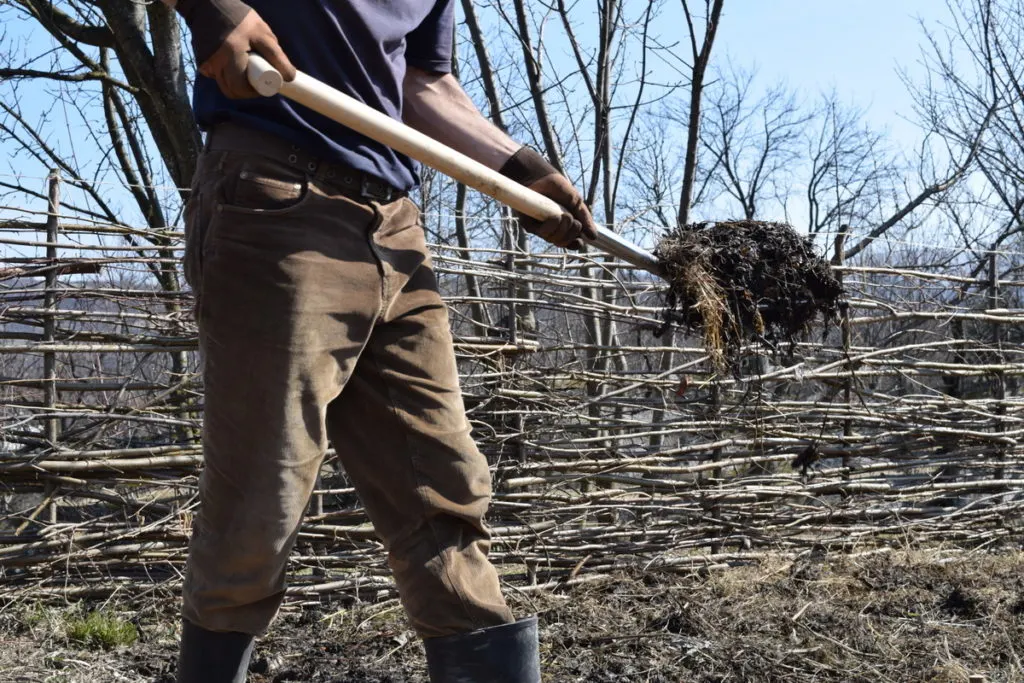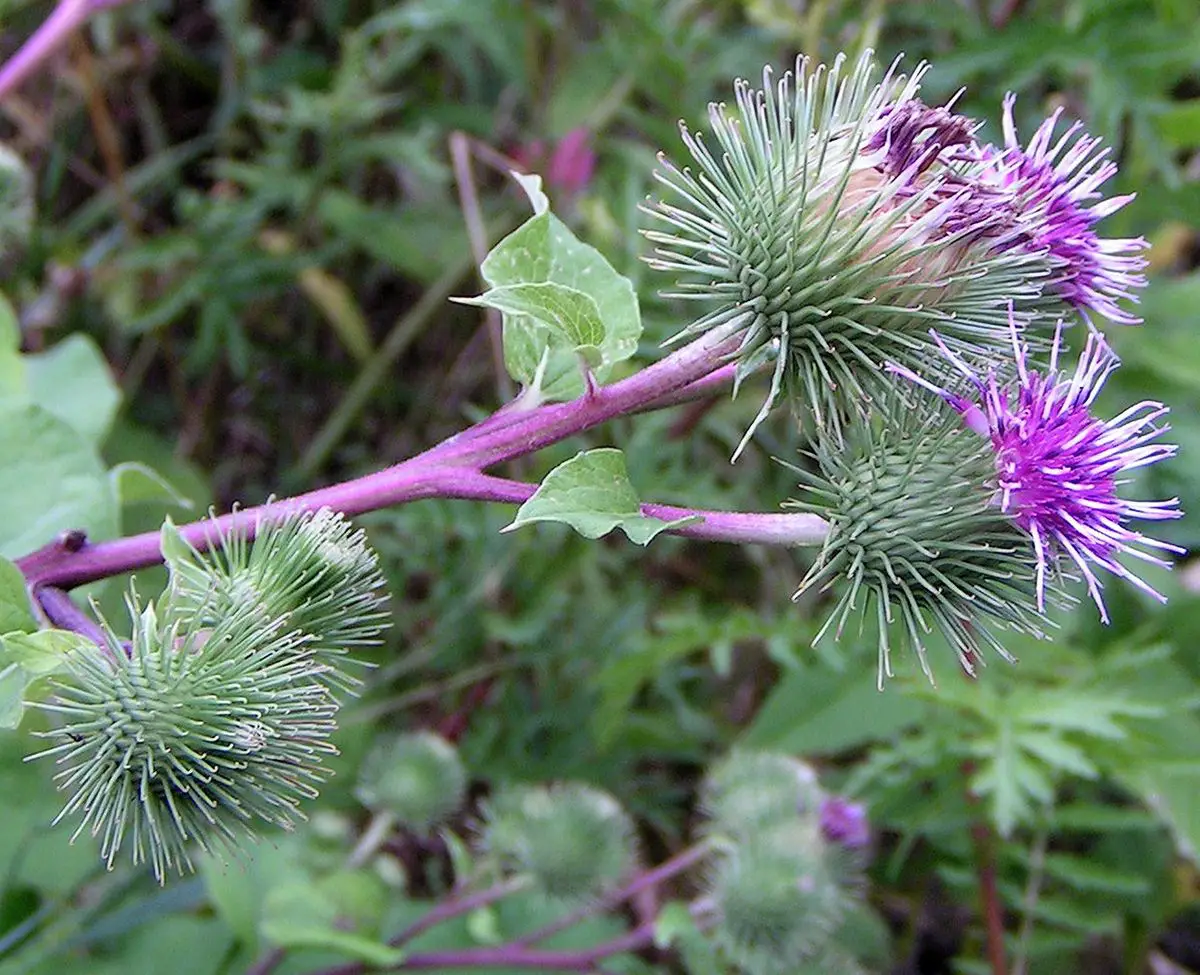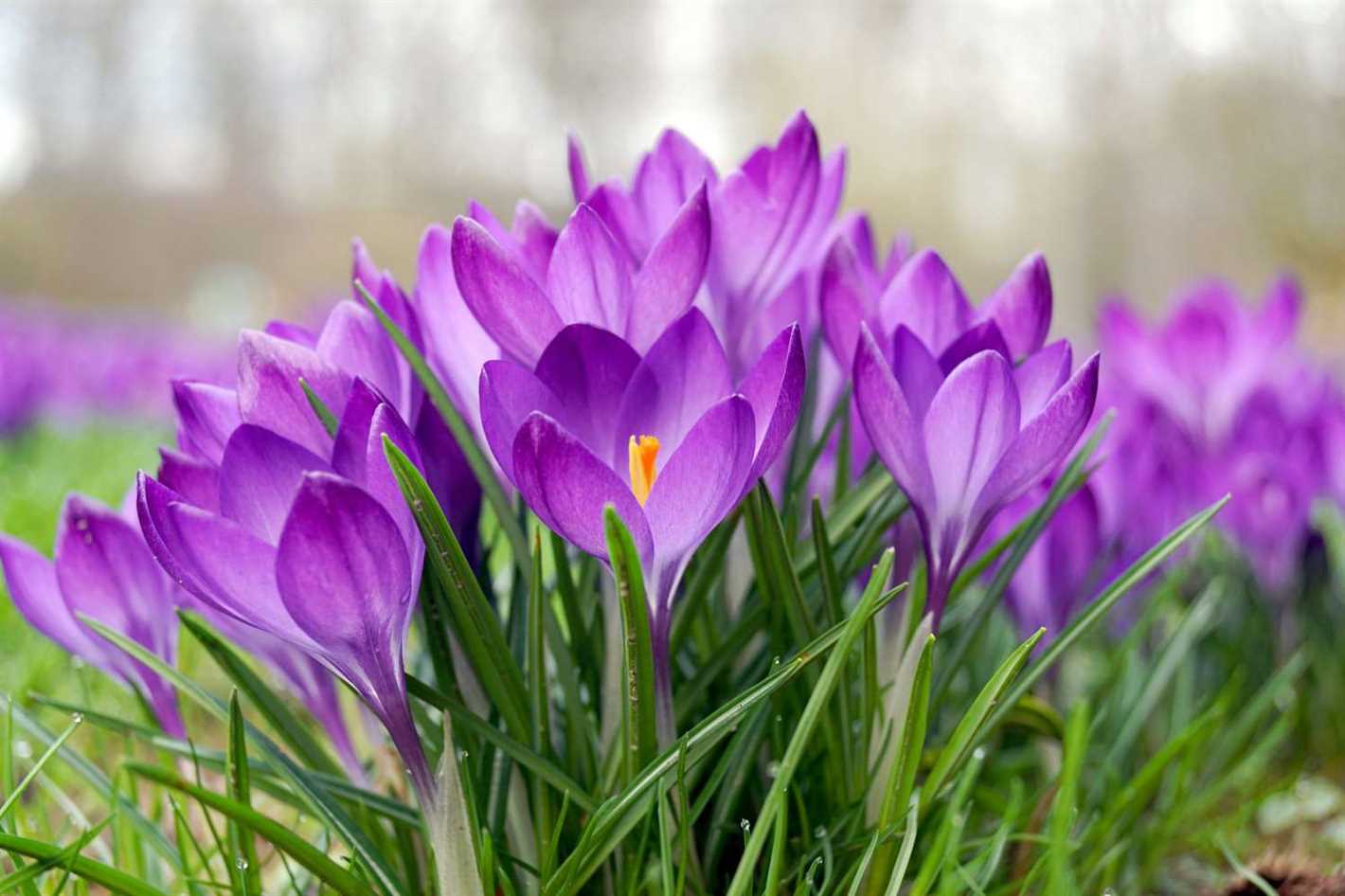- When to Start Fertilizing Roses in Spring
- 1. Wait for the Right Conditions
- 2. Monitor Bud Break
- 3. Choose the Right Fertilizer
- 4. Follow a Regular Fertilizing Schedule
- Understanding the Different Types of Fertilizers for Roses
- 1. Organic Fertilizers
- 2. Synthetic Fertilizers
- 3. Slow-Release Fertilizers
- 4. Balanced Fertilizers
- Choosing the Best Organic Fertilizers for Roses
- 1. Compost
- 2. Manure
- 3. Bone Meal
- 4. Fish Emulsion
- 5. Seaweed Extract
- 6. Alfalfa Meal
- 7. Worm Castings
- Tips for Applying Fertilizers to Roses during Bud Break
- 1. Choose the Right Fertilizer
- 2. Start Slow and Gradual
- 3. Apply Fertilizers Evenly
- 4. Water Thoroughly
- 5. Mulch to Retain Moisture
- 6. Monitor the Roses
- 7. Follow Instructions Carefully
- The Role of Nitrogen Fertilizers in Promoting Rose Blooming
- The Importance of Phosphorus-Based Fertilizers for Rose Growth
- Best Potassium Fertilizers for Strong and Healthy Rose Blooms
- 1. Soluble Potash Fertilizer
- 2. Composted Banana Peels
- 3. Wood Ash
- 4. Sea Kelp Fertilizer
- 5. Organic Compost
- Organic Ways to Improve Soil Fertility for Better Rose Blooming
- 1. Compost
- 2. Organic Mulch
- 3. Manure
- 4. Fish Emulsion
- 5. Cover Crops
- 6. Organic Fertilizers
- 7. Soil Testing
- Questions and Answers:
- What are the best fertilizers for roses in spring?
- When should I start fertilizing my roses in spring?
- How often should I fertilize my roses in spring?
- Can I use slow-release fertilizers for roses in spring?
- Are there any specific fertilizers for different types of roses?
- Can I use organic fertilizers for my roses in spring?
- Are there any alternatives to chemical fertilizers for roses in spring?
- Videos: Fertilizer for Roses
Roses are one of the most beloved and popular flowers, known for their gorgeous blooms and pleasant fragrance. To ensure that your roses grow and thrive, it’s important to provide them with the right nutrients. Fertilizing your roses in the spring is crucial, as this is the time when they are actively growing and preparing to bloom.
When selecting a fertilizer for your roses, it’s important to choose one that is specifically formulated for roses. These fertilizers typically contain a balanced blend of essential nutrients such as nitrogen, phosphorus, and potassium, as well as micronutrients like iron and magnesium. They also often include beneficial compounds like mycorrhizal fungi, which help the roots of the roses take up nutrients more efficiently.
One popular option for rose fertilizers is a slow-release fertilizer. These fertilizers release nutrients gradually over time, providing a steady supply of nutrients to the roses. This is especially beneficial during the spring, as the roses are actively growing and need a continuous supply of nutrients.
In addition to choosing the right fertilizer, it’s also important to apply it correctly. It’s best to fertilize your roses in the early spring, just as new growth is beginning to emerge. You can apply the fertilizer around the base of the plant, being careful not to get any on the leaves or stems. Water the fertilizer in well after application to ensure that the nutrients are absorbed by the roots.
By selecting the right fertilizer and applying it at the right time, you can help your roses thrive and produce beautiful blooms throughout the spring and summer. With proper care, your roses will reward you with a stunning display of color and fragrance that will enhance any garden or landscape.
When to Start Fertilizing Roses in Spring
Knowing the right time to start fertilizing your roses in the spring is essential for promoting healthy growth and beautiful blooms. While the specific timing may vary depending on your geographical location and climate, there are some general guidelines you can follow.
1. Wait for the Right Conditions
Before you start fertilizing your roses, it’s important to wait for the right conditions. Make sure the soil is no longer frozen and the danger of frost has passed. Fertilizing too early can cause damage to the plants, so it’s best to err on the side of caution.
2. Monitor Bud Break
One of the best indicators that it’s time to start fertilizing your roses is when the buds begin to break open and show signs of new growth. This is typically in early spring, but it can vary depending on the region. Keep a close eye on your roses and begin fertilizing once you see signs of bud break.
3. Choose the Right Fertilizer
When selecting a fertilizer for your roses, it’s important to choose one that is specifically formulated for roses. Look for a balanced fertilizer with a ratio of nutrients, such as 10-10-10 or 14-14-14. These ratios provide a good mix of nitrogen, phosphorus, and potassium, which are essential for healthy growth.
4. Follow a Regular Fertilizing Schedule
Once you’ve started fertilizing your roses, it’s important to follow a regular schedule throughout the growing season. Typically, roses benefit from monthly fertilization from early spring until late summer. However, make sure to read the instructions on the fertilizer packaging for specific guidelines and adjust accordingly.
In summary, to determine when to start fertilizing your roses in the spring, wait for the right conditions, monitor bud break, choose the right fertilizer, and follow a regular fertilizing schedule. By following these guidelines, you can help your roses flourish and produce beautiful blooms throughout the season.
Understanding the Different Types of Fertilizers for Roses
When it comes to fertilizing roses, there are several different types of fertilizers to choose from. Each type of fertilizer provides different nutrients that are beneficial for the growth and health of roses. Understanding the different types of fertilizers can help you make an informed decision on which one to use for your roses.
1. Organic Fertilizers
Organic fertilizers are derived from natural sources such as compost, manure, and bone meal. They contain a variety of nutrients that are gradually released into the soil, providing a slow and steady supply of nutrition to the roses. Organic fertilizers improve soil structure and fertility over time and are environmentally friendly.
- Advantages: Organic fertilizers promote long-term soil health, encourage beneficial microorganisms, and are safe for the environment.
- Disadvantages: They may take longer to show results and can have a strong odor.
2. Synthetic Fertilizers
Synthetic fertilizers are chemically manufactured and provide an immediate supply of nutrients to the roses. They usually come in granular or liquid form and contain a specific ratio of nitrogen, phosphorus, and potassium (NPK). Synthetic fertilizers are easily absorbed by the plants and can quickly improve their overall growth and appearance.
- Advantages: Synthetic fertilizers provide quick results and are easy to apply.
- Disadvantages: They can have a negative impact on soil health over time and may contribute to water pollution if overused.
3. Slow-Release Fertilizers
Slow-release fertilizers are designed to release nutrients gradually over an extended period. They come in granular form and usually have a coating or encapsulation that determines how quickly the nutrients are released. Slow-release fertilizers provide a steady supply of nutrients to the roses, reducing the risk of over-fertilization and minimizing the need for frequent applications.
- Advantages: Slow-release fertilizers provide a continuous source of nutrients, reduce the risk of nutrient leaching, and require fewer applications.
- Disadvantages: They can be more expensive upfront and may not provide an immediate boost in growth.
4. Balanced Fertilizers
Balanced fertilizers are formulated to provide an equal ratio of nitrogen, phosphorus, and potassium, commonly known as NPK. These fertilizers are suitable for maintaining the overall health and vigor of roses. Balanced fertilizers are often labeled with an equal NPK ratio, such as 10-10-10 or 20-20-20.
- Advantages: Balanced fertilizers ensure that all essential nutrients are supplied in equal amounts, supporting overall plant growth and development.
- Disadvantages: They may not address specific nutrient deficiencies in the soil.
When choosing a fertilizer for your roses, consider factors such as the current nutrient levels in your soil, the specific needs of your roses, and your personal gardening preferences. It’s also important to follow the instructions on the fertilizer packaging for the proper application rates and timing.
Choosing the Best Organic Fertilizers for Roses
Roses require regular fertilization to promote healthy growth and abundant blooms. Organic fertilizers are an excellent choice for enriching the soil with essential nutrients without the use of chemicals. Here are some of the best organic fertilizers to consider for your roses:
1. Compost
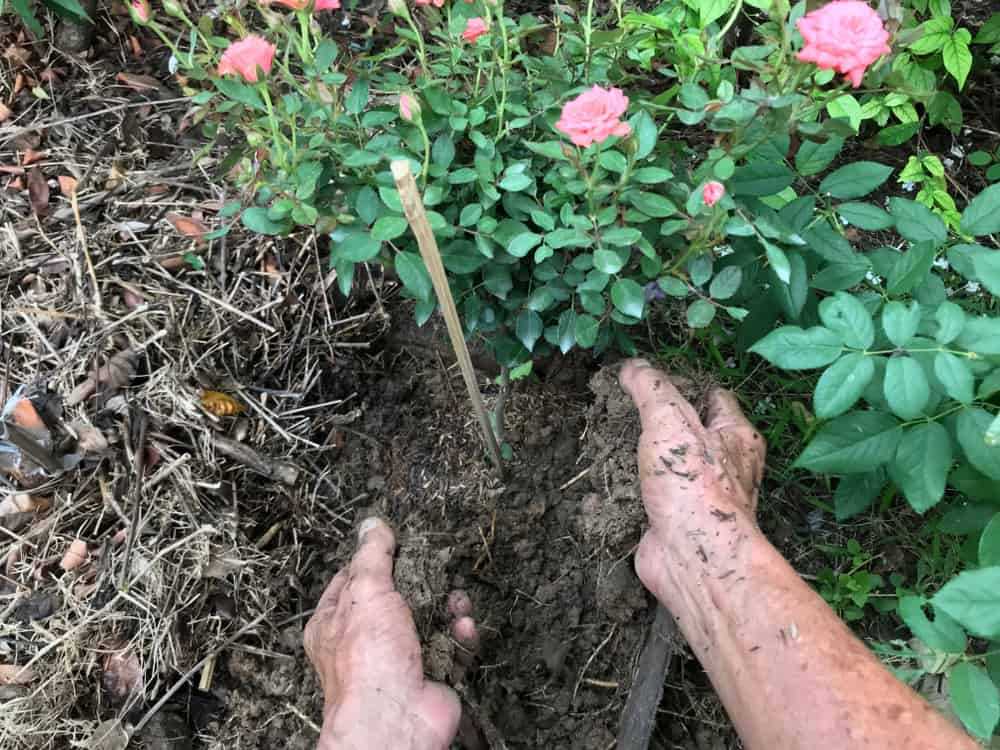
Compost is a natural and rich source of nutrients for roses. It improves soil structure, adds organic matter, and enhances the ability of plants to absorb nutrients. You can make your compost using kitchen scraps, yard waste, and other organic materials.
2. Manure
Well-rotted manure from herbivores like horses, cows, or rabbits is a great organic fertilizer option for roses. It provides essential nutrients like nitrogen, phosphorus, and potassium while improving soil texture and water retention. Use aged or composted manure to avoid burning the plants.
3. Bone Meal
Bone meal is a slow-release organic fertilizer that is rich in phosphorus, which is essential for root development and flowering. It also contains some nitrogen and calcium. Sprinkle bone meal around the base of the rose bushes and lightly work it into the soil.
4. Fish Emulsion
Fish emulsion is a liquid organic fertilizer made from fish waste. It is a quick-release fertilizer that provides a good source of nitrogen, phosphorus, and trace minerals. Dilute fish emulsion according to the package instructions and apply it to the roses every two to three weeks during the growing season.
5. Seaweed Extract
Seaweed extract is a natural organic fertilizer that is rich in trace elements, minerals, and growth hormones. It promotes root development, improves overall plant health, and enhances resistance to diseases. Dilute seaweed extract according to the package instructions and apply it as a foliar spray or soil drench.
6. Alfalfa Meal
Alfalfa meal is a slow-release organic fertilizer that contains a balanced ratio of nitrogen, phosphorus, and potassium. It also contains many trace elements and beneficial microorganisms that improve soil fertility. Sprinkle alfalfa meal around the base of the rose bushes and water it in.
7. Worm Castings
Worm castings, also known as vermicompost, are an excellent organic fertilizer and soil amendment. They are rich in nutrients, beneficial bacteria, and organic matter. Apply worm castings around the base of the rose bushes and gently work them into the soil.
When using organic fertilizers, it is essential to follow the package instructions and avoid over-fertilizing, as excessive nutrients can cause damage to the roses. Regularly monitor the growth and health of your roses to determine if any adjustments or additional fertilization is needed.
In conclusion, choosing the best organic fertilizers for roses can help improve the overall health and vitality of your plants, promoting lush growth and abundant blooming throughout the growing season.
Tips for Applying Fertilizers to Roses during Bud Break
Applying fertilizers to roses during bud break is a crucial step in ensuring healthy growth and beautiful blooms. Here are some tips to help you properly apply fertilizers to your roses during this important stage.
1. Choose the Right Fertilizer
When selecting a fertilizer for your roses during bud break, opt for a balanced formula that provides a good mix of nutrients. Look for a fertilizer with equal amounts of nitrogen, phosphorus, and potassium, such as a 10-10-10 or 14-14-14 blend.
2. Start Slow and Gradual
During bud break, roses are just starting to wake up from winter dormancy. It’s important to slowly introduce fertilizers to avoid overwhelming the plants. Start with a diluted solution and apply it once every two weeks. As the buds begin to grow, you can gradually increase the strength and frequency of the fertilizer application.
3. Apply Fertilizers Evenly

When applying fertilizers, make sure to distribute them evenly around the base of the rose plants. This will ensure that all the roots have access to the nutrients. Avoid piling the fertilizer directly against the stem, as it may cause burning.
4. Water Thoroughly
After applying fertilizers, water the roses thoroughly to help the nutrients penetrate the soil and reach the roots. Watering will also prevent any potential burning of the foliage or root damage.
5. Mulch to Retain Moisture
Adding a layer of organic mulch around the base of the roses can help retain moisture and regulate the temperature of the soil. This will aid in nutrient absorption and overall plant health.
6. Monitor the Roses
Keep a close eye on your roses after applying fertilizers during bud break. Look for any signs of nutrient deficiencies or excesses, such as yellowing leaves, stunted growth, or burnt tips. Adjust the fertilizer application accordingly to ensure your roses receive the optimal amount of nutrients.
7. Follow Instructions Carefully
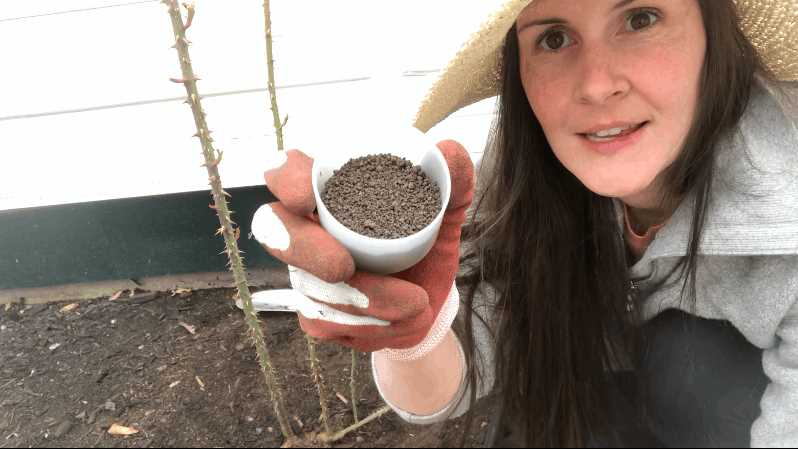
Always read and follow the instructions provided by the fertilizer manufacturer. Different products may have specific application rates and guidelines that should be adhered to for best results.
By following these tips, you can provide your roses with the necessary nutrients during bud break, setting the stage for healthy growth and vibrant blooms.
The Role of Nitrogen Fertilizers in Promoting Rose Blooming
Roses are delicate and beautiful flowers that require special care to thrive and produce abundant blooms. One important aspect of rose care is the use of proper fertilizers, and nitrogen fertilizers play a crucial role in promoting rose blooming.
What is Nitrogen?
Nitrogen is one of the essential macronutrients required by plants for healthy growth. It is responsible for various physiological processes, including leaf and stem development, photosynthesis, and the formation of proteins.
Nitrogen and Rose Blooming
Nitrogen is particularly important for rose plants during their blooming phase. It helps in the production of chlorophyll, which is necessary for photosynthesis and overall plant vigor. Additionally, nitrogen promotes strong and healthy foliage, which in turn supports the development of large and vibrant blooms.
Types of Nitrogen Fertilizers
There are different types of nitrogen fertilizers that can be used for roses:
- Organic Nitrogen Fertilizers: Examples include blood meal, fish meal, and compost. Organic fertilizers provide a slow release of nitrogen, promoting steady growth and preventing nutrient burn.
- Inorganic Nitrogen Fertilizers: Examples include ammonium nitrate, urea, and ammonium sulfate. Inorganic fertilizers provide a quick release of nitrogen, which can be beneficial during the active growing season or when there is a deficiency.
Application of Nitrogen Fertilizers
The application of nitrogen fertilizers should be done in a balanced manner to avoid overfeeding or underfeeding the roses. Here are some guidelines:
- Apply nitrogen fertilizers in early spring, just before the active growth phase begins. This will provide the roses with the necessary nutrients for healthy foliage and blooming.
- Follow the manufacturer’s instructions for the recommended dosage and frequency of application. Over-application of nitrogen can lead to excessive foliage growth at the expense of blooming.
- Consider performing a soil test to determine the nitrogen levels in the soil. This will help in adjusting the fertilizer application accordingly.
Conclusion
Nitrogen fertilizers play a vital role in promoting rose blooming by supporting healthy foliage and providing the necessary nutrients for photosynthesis. Understanding the different types of nitrogen fertilizers and their proper application will contribute to the overall success of growing beautiful and blooming roses.
The Importance of Phosphorus-Based Fertilizers for Rose Growth
Roses are beautiful and delicate flowers that require proper care and nutrients to thrive. One of the most important nutrients for rose growth is phosphorus. Phosphorus plays a crucial role in the development of the rose plant, especially during the spring season when roses experience rapid growth.
Promotes Root Development: Phosphorus-based fertilizers are essential for promoting strong root development in roses. The roots of roses need to be healthy and well-developed to absorb water and nutrients effectively. Phosphorus stimulates root growth and helps roses establish a strong foundation, enabling them to withstand stress and diseases.
Encourages Flower Production: Phosphorus is vital for flower production in roses. It assists in the transfer of energy throughout the plant, promoting the formation of buds and flowers. Roses that receive an adequate amount of phosphorus-based fertilizer are more likely to produce abundant blooms with vibrant colors.
Enhances Overall Plant Health: Phosphorus-based fertilizers contribute to the overall health and vigor of rose plants. They improve the plant’s resistance to diseases and pests, helping roses to grow stronger and more resilient. Strong and healthy roses are less likely to suffer from various problems such as black spot, powdery mildew, and root rot.
How to Apply Phosphorus-Based Fertilizers:
- Before applying phosphorus-based fertilizers, it is essential to test the soil to determine its nutrient levels. This will help in assessing the specific amount of phosphorus required.
- Spread the fertilizer evenly around the base of the rose plant, avoiding direct contact with the stems or foliage.
- Water the plants thoroughly after applying the fertilizer to ensure proper absorption.
- Apply phosphorus-based fertilizers according to the package instructions or as recommended by a horticulture specialist.
Note: While phosphorus-based fertilizers are beneficial for rose growth, it is important not to overapply them. Excessive use of phosphorus can lead to imbalances in the soil and may harm the environment. It is always best to follow the recommended dosage and consult with experts if needed.
In conclusion, phosphorus-based fertilizers play a significant role in promoting the growth and development of roses. They enhance root development, encourage flower production, and improve overall plant health. By properly applying phosphorus-based fertilizers, gardeners can ensure that their roses receive the necessary nutrients for healthy growth and stunning blooms.
Best Potassium Fertilizers for Strong and Healthy Rose Blooms
Potassium is an essential nutrient for the overall health and vigor of rose plants. It plays a vital role in promoting strong root development, improving disease resistance, and enhancing flower color and fragrance. Adding potassium-rich fertilizers to your rose plants will help them produce robust and vibrant blooms. Here are some of the best potassium fertilizers to consider:
1. Soluble Potash Fertilizer
One of the most effective forms of potassium fertilizer is soluble potash fertilizer. This type of fertilizer is available in a fine powder or granular form that easily dissolves in water. You can apply it directly to the soil or use it as a foliar spray. Soluble potash fertilizers provide an immediate potassium boost to the plants, helping them absorb the nutrients quickly. They are especially beneficial during periods of active growth and flowering.
2. Composted Banana Peels
Banana peels are a fantastic source of potassium for roses. You can compost the peels and use the resulting compost as a natural fertilizer. Simply chop or grind the peels and mix them into the soil around your rose plants. The composted banana peels slowly release potassium over time, giving your roses a steady supply of nutrients. Additionally, banana peels also contain calcium, magnesium, and other trace minerals that are beneficial to rose plants.
3. Wood Ash
If you have a wood-burning fireplace or fire pit, the wood ash can serve as an excellent source of potassium for your roses. Wood ash is rich in potassium carbonate, also known as potash. Sprinkle a thin layer of wood ash around the base of your roses and gently work it into the soil. Be careful not to apply too much ash, as it can raise the pH level of the soil. Wood ash also contains calcium, phosphorus, and trace elements that can benefit your rose plants.
4. Sea Kelp Fertilizer
Sea kelp or seaweed fertilizer is a natural and organic source of potassium for roses. It contains various beneficial nutrients, including potassium, magnesium, and trace minerals. Sea kelp fertilizers can be applied to the soil or used as foliar sprays. They improve soil fertility, stimulate root growth, and enhance the overall health of rose plants. Additionally, seaweed fertilizers also contain natural growth hormones that promote flower bud formation and blooming.
5. Organic Compost
Using organic compost is another way to provide a steady supply of potassium to your rose plants. Composting kitchen scraps, garden waste, and other organic materials can create a nutrient-rich compost that nourishes the soil. Organic compost releases potassium slowly as it breaks down, delivering a continuous supply of nutrients to your roses. It also improves soil structure, drainage, and moisture-holding capacity, creating an ideal environment for strong and healthy rose blooms.
When using potassium fertilizers, remember to follow the instructions on the package and avoid over-fertilizing. Applying too much potassium can cause nutrient imbalances and harm your rose plants. Additionally, it’s essential to regularly monitor the pH level of your soil to ensure optimal nutrient uptake by the roses.
Organic Ways to Improve Soil Fertility for Better Rose Blooming
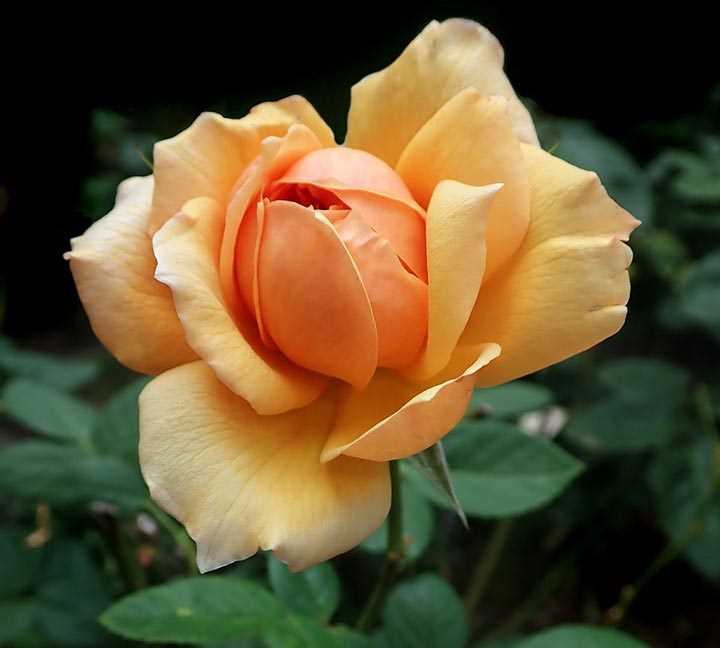
The key to successful rose blooming lies in having healthy, fertile soil. By enriching the soil with organic matter and nutrients, you can create an optimal environment for your roses to thrive. Here are some organic ways to improve soil fertility and enhance rose blooming:
1. Compost
Compost is a natural fertilizer that improves soil structure, increases water retention, and provides essential nutrients to plants. Start by composting kitchen scraps and yard waste. Spread a layer of compost around the base of your roses and gently work it into the soil using a garden fork or shovel.
2. Organic Mulch
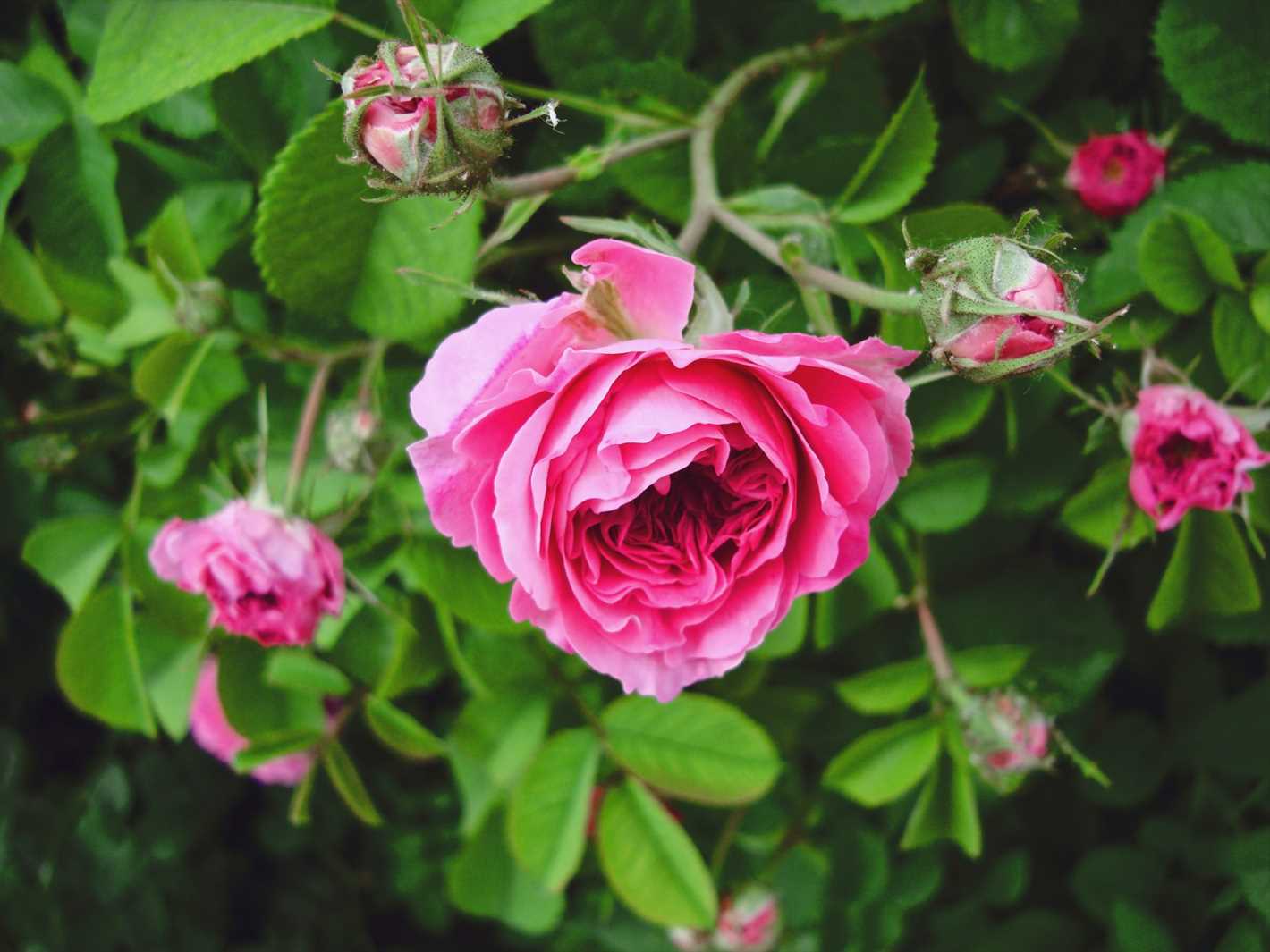
A layer of organic mulch around the base of your roses helps retain moisture, suppresses weeds, and adds nutrients as it breaks down. Use materials like shredded leaves, straw, or wood chips. Apply a 2-3 inch layer of mulch, making sure to leave space around the stem to prevent rot.
3. Manure
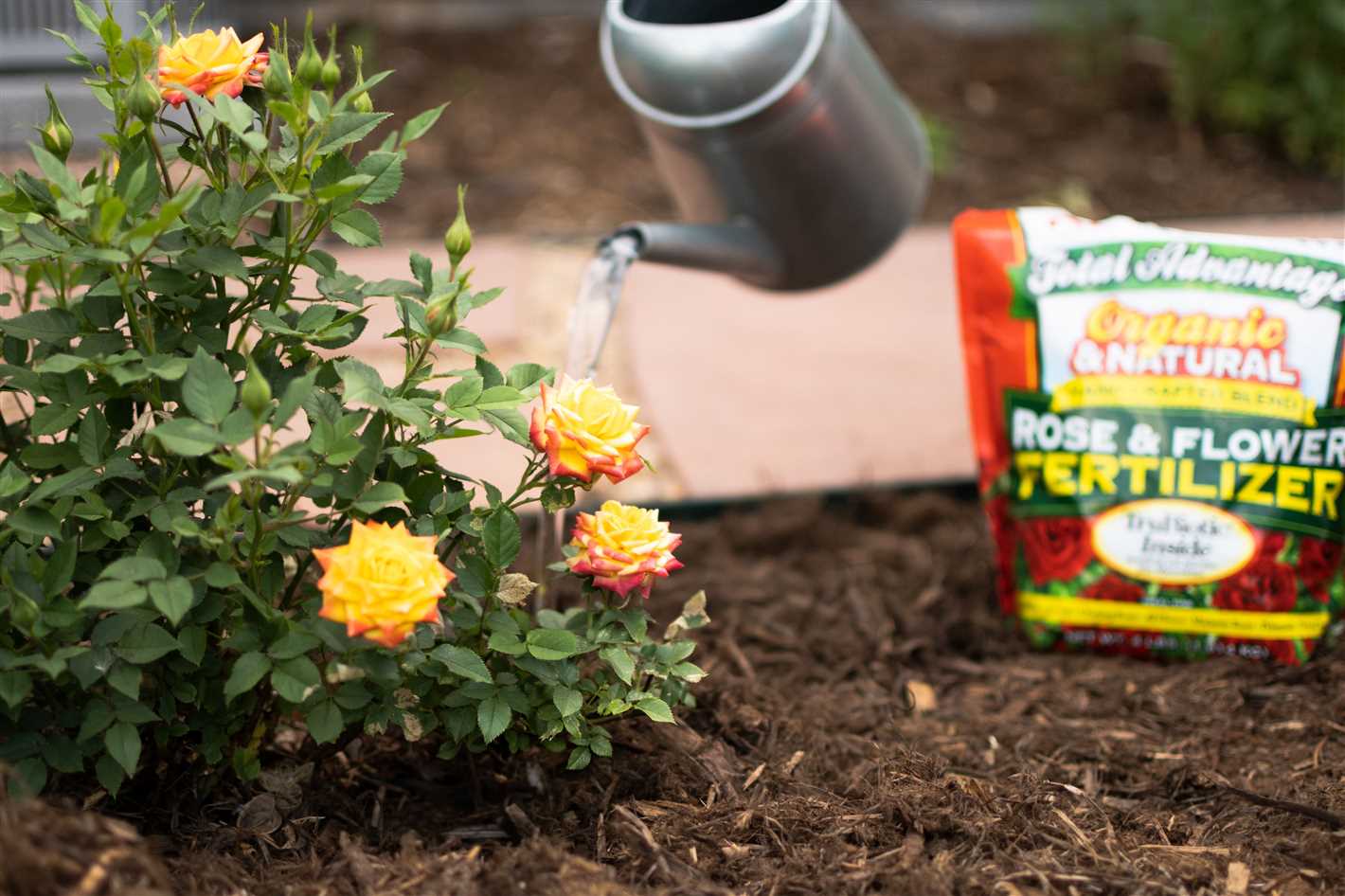
Well-rotted manure, such as cow or horse manure, is an excellent source of organic matter and nutrients for roses. Apply it in the spring, before new growth begins. Spread a thin layer of manure around the base of the roses, taking care not to let it touch the stems.
4. Fish Emulsion
Fish emulsion is a natural fertilizer made from fish byproducts. It provides roses with essential nutrients like nitrogen, phosphorus, and potassium. Dilute fish emulsion according to the package instructions and apply it to the soil around the roses every few weeks during the growing season.
5. Cover Crops
Planting cover crops, such as clover or vetch, in the fall can help improve soil fertility. These plants fix nitrogen in the soil, add organic matter when tilled under, and prevent erosion. In the spring, before planting your roses, cut down the cover crops and mix them into the soil.
6. Organic Fertilizers
There are many organic fertilizers specifically formulated for roses. Look for products that contain a balanced ratio of nutrients, like an NPK (nitrogen-phosphorus-potassium) fertilizer. Follow the package instructions for application rates and timing, and avoid over-fertilizing, as this can harm your roses.
7. Soil Testing
Regular soil testing can help you determine the pH level and nutrient content of your soil. This information will guide you in making the necessary adjustments to improve soil fertility. Take a soil sample and send it to a reputable soil testing laboratory for analysis.
By implementing these organic methods, you can improve soil fertility for better rose blooming. Remember to water your roses regularly and provide them with adequate sunlight to maximize their flowering potential.
Questions and Answers:
What are the best fertilizers for roses in spring?
The best fertilizers for roses in spring are those that are high in nitrogen and phosphorus, such as a balanced rose fertilizer or organic options like compost or manure.
When should I start fertilizing my roses in spring?
You should start fertilizing your roses in spring when the buds begin to break and show signs of growth. This is usually around early spring, when the weather starts to warm up.
How often should I fertilize my roses in spring?
You should fertilize your roses in spring every 4-6 weeks. This will provide them with a constant supply of nutrients to support their growth and blooming.
Can I use slow-release fertilizers for roses in spring?
Yes, you can use slow-release fertilizers for roses in spring. These types of fertilizers provide a steady release of nutrients over a longer period of time, which can be beneficial for the continuous growth and blooming of roses.
Are there any specific fertilizers for different types of roses?
Yes, there are specific fertilizers available for different types of roses. For example, there are fertilizers formulated specifically for hybrid teas, climbers, or shrub roses. These fertilizers cater to the specific needs and growth habits of each type of rose.
Can I use organic fertilizers for my roses in spring?
Yes, you can use organic fertilizers for your roses in spring. Organic options like compost or manure can provide the necessary nutrients for healthy growth and blooming. They also help improve soil quality and promote beneficial soil microorganisms.
Are there any alternatives to chemical fertilizers for roses in spring?
Yes, there are alternatives to chemical fertilizers for roses in spring. Besides organic options like compost or manure, you can also use natural fertilizers like fish emulsion or seaweed extract. These alternatives provide a more environmentally friendly approach to fertilizing roses.
